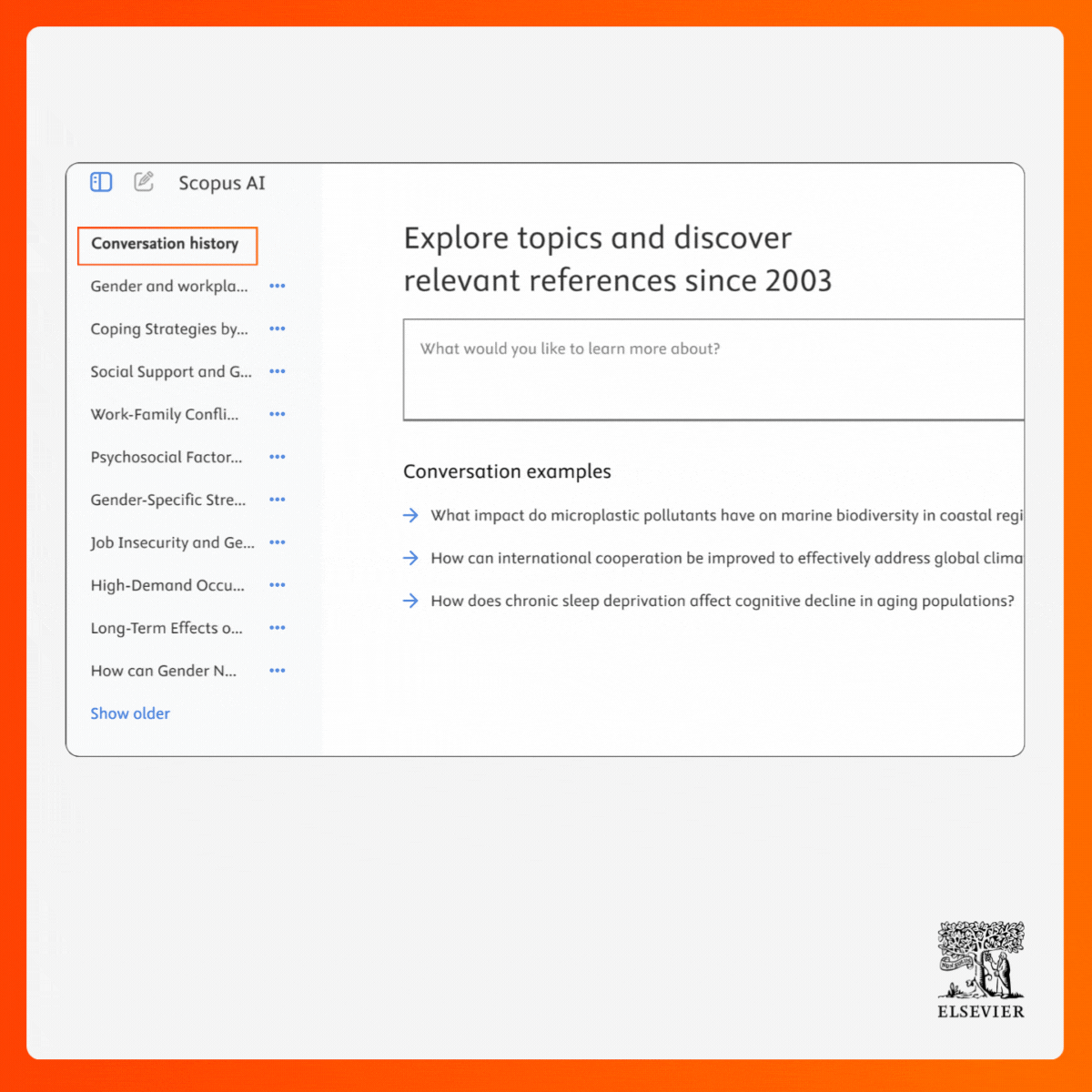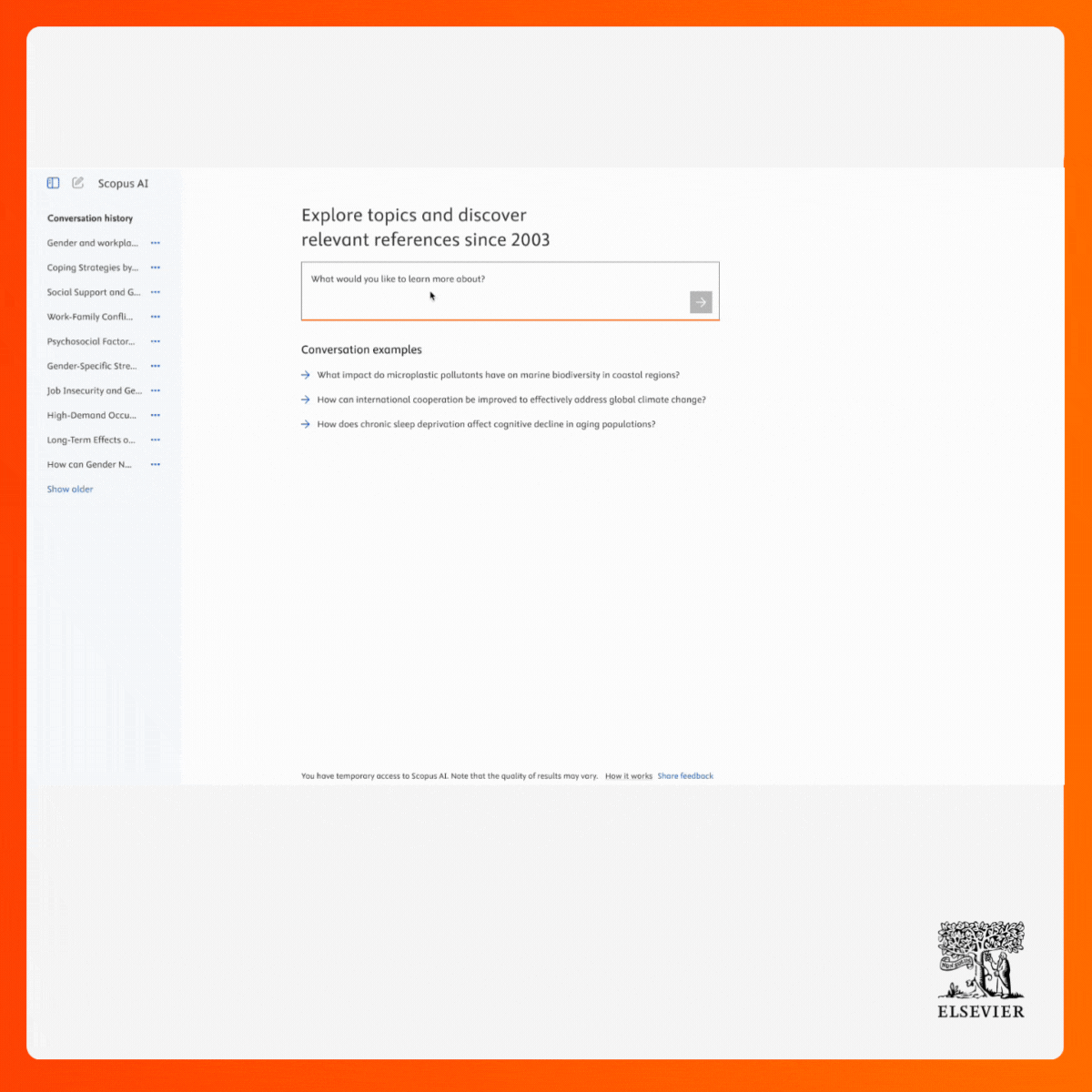We understand that research doesn’t just happen at your desk—it happens wherever inspiration strikes. That’s why we’ve optimized Scopus AI for mobile, so you can access its full power wherever life takes you.
Plus, we’ve introduced several new features that make it easier than ever to refine your queries and identify emerging research trends, giving you a sharper edge in your field.

We have all become accustomed to technology that offers the flexibility to work wherever and whenever we want. With Scopus AI optimized for mobile, your ideas can flow anytime, anywhere. The mobile version offers:
Near real-time synchronization across your mobile and desktop so you can pick up your work where you left off

One of Scopus AI’s new features is Conversational follow-up, designed to open the door to curiosity by leading you in interesting and unexpected directions. This free-text field within your Scopus AI response enables you to:

Conversational history is another new feature introduced with the goal of saving you time as you navigate Scopus AI. It’s a great visual aid, providing an overview of all the topics you’ve previously explored. It also enables you to: